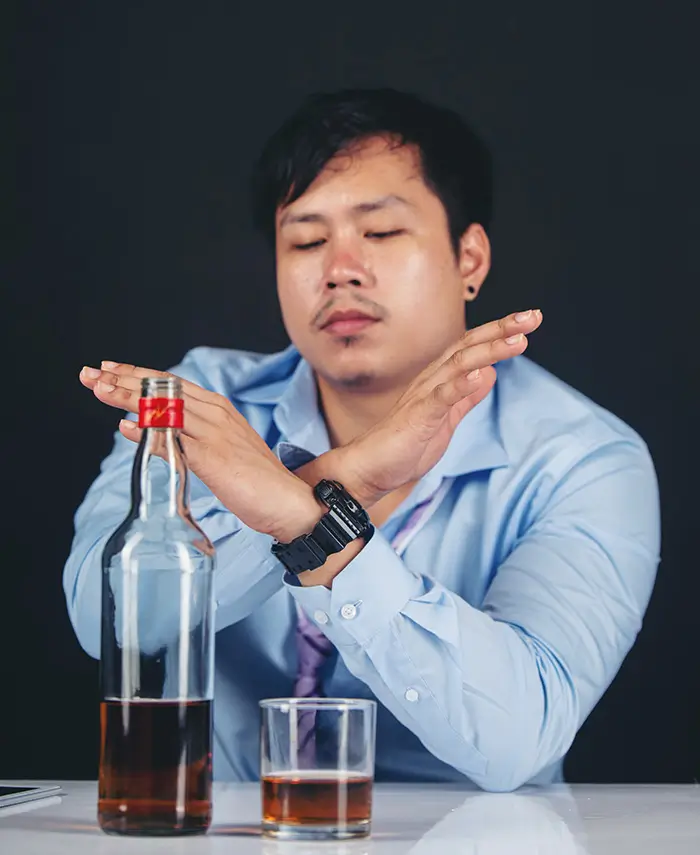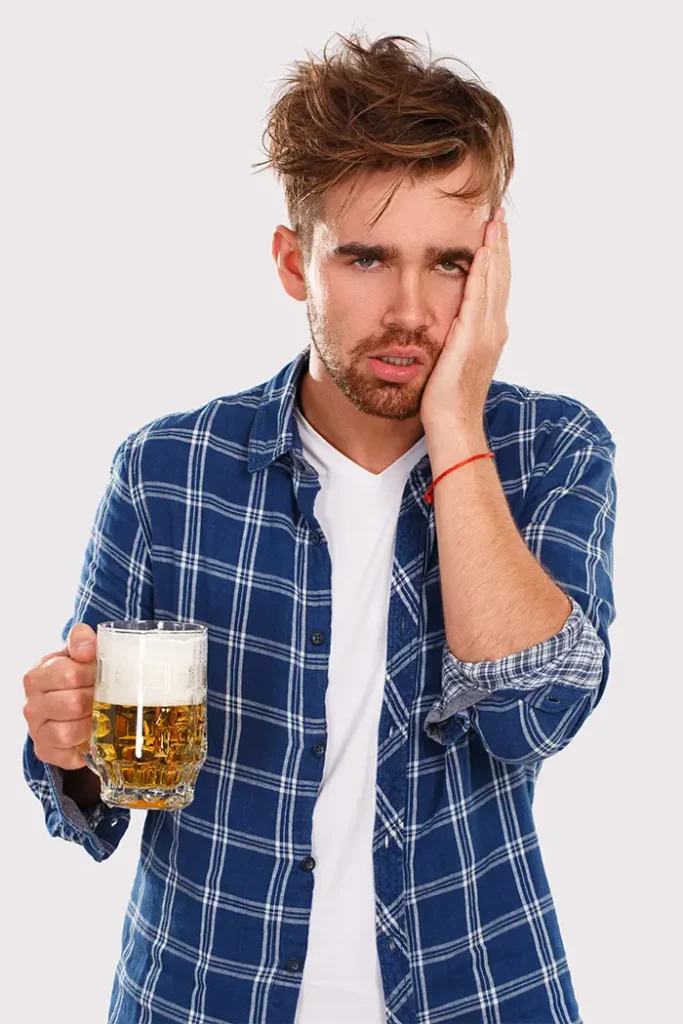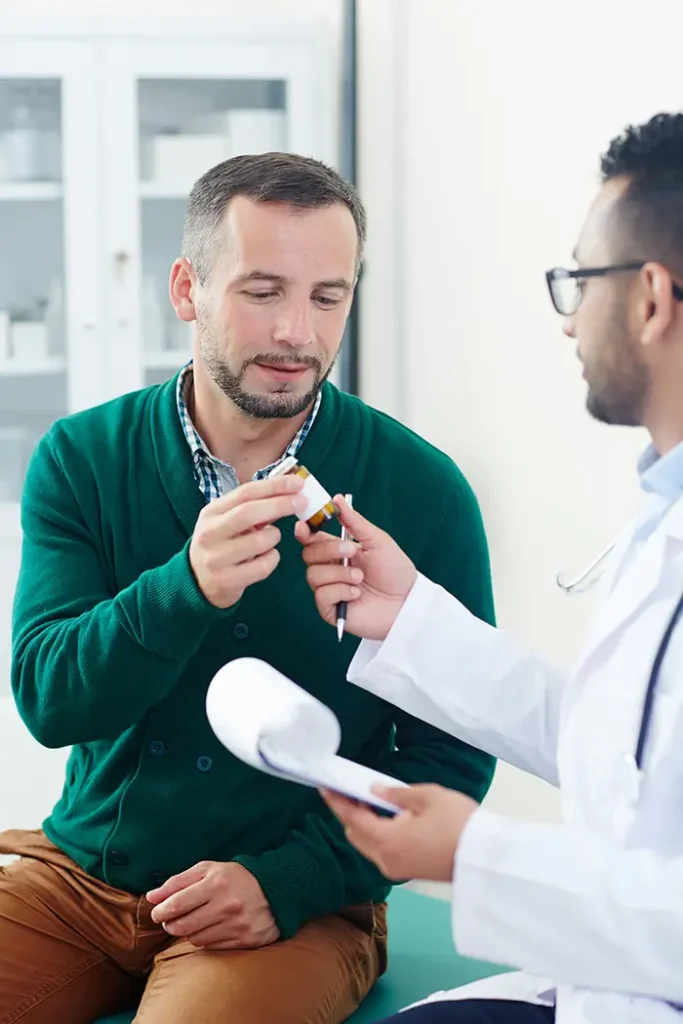Break the Chains of Alcohol Addiction With Us
We create personalized alcohol treatment plans for your recovery, helping you get back the lost hope.
Request a Callback
Alcohol Treatment New Jersey: Overview
Alcohol addiction, doctors call it alcoholism, can make it feel like you’re trapped in a cycle you can’t break. When you can’t control how much you drink, and your emotions feel out of control when you’re not drinking, it’s easy to feel isolated and overwhelmed. Many people think they should handle it on their own with willpower, but Alcohol Use Disorder (AUD) is a medical condition that requires the right support and treatment. You don’t have to face this alone.
In 2022, the National Institutes of Health (NIH) reported that 29.5 million Americans aged 12 and older were struggling with alcohol use disorder. That’s a staggering number, showing you’re not alone in facing this challenge – many others are on the same path. But the good news is that there are many treatment options available today beyond just Alcoholics Anonymous (AA, a renowned global support group for alcohol addiction), including outpatient treatment, residential programs, and therapy to help you overcome alcohol use disorder in a way that works for you.
If you or someone you know is looking for Alcohol treatment in New Jersey, Relevance Recovery offers a range of services designed to support you. With personalized care and a focus on long-term healing, we are here to help you break free from alcohol and live a sober life.


What is Alcoholism?
Alcoholism, or Alcohol Use Disorder (AUD), is a condition where individuals lack self-control and often overindulge themselves in drinking. In fact, the NIH has claimed alcoholism can affect individuals of any age and gender, seriously impacting lives. It has multiple causes, including genetics, mental health, and lifestyle, that can play a part in developing this addiction. For some, alcohol use might seem mild at first, but over time, it can take control, making it hard to stop drinking or stay sober for long periods.
Your doctor or another healthcare provider can help diagnose alcohol use disorder if you experience certain signs like:
- You may feel like you need to drink
- Have trouble controlling how much you drink
- Feel upset when you can’t drink.
Alcoholism affects the brain and changes how a person thinks and acts, which is why it’s not simply a matter of strength. The way it shows up can vary:
- Some people drink heavily every day
- Others binge and stay sober for a while.
No matter how it looks, if alcohol is taking over and preventing you from staying sober, it’s a sign that help is needed. Getting the right support for alcohol treatment is the key.
Symptoms That Could Indicate Alcohol Addiction
If you’re wondering whether you have an alcohol addiction, you can look for these signs and symptoms, and if you have at least 2 of the 11 signs listed in the DSM-5-TR, you should consult an expert. If you are self-diagnosing at first, here are the signs you can look for:
- Inability to limit or control alcohol consumption
- Strong urge or compulsion to drink
- Experiencing blackouts or memory lapses
- Increased tolerance, needing more alcohol to feel the same effect
- Dependence on alcohol to cope or function daily
- Avoiding loved ones or withdrawing from relationships
- Prioritizing alcohol over responsibilities and hobbies
- Drinking at inappropriate times or places
Based on how many of these signs someone shows, doctors will classify the AUD as mild, moderate, or severe. As you begin to see increasing signs, you need to go for immediate treatment.
It’s about a pattern of excessive drinking that’s hard to control. Alcohol addiction can develop over time, especially if drinking goes beyond moderate amounts and becomes more frequent.
Alcohol consumption becomes problematic when it outweighs all other aspects of life. This often leads to prioritizing drinking over daily activities and responsibilities. This behavior is a key indicator of alcohol use disorder (AUD). If you notice any of these signs, it’s time to seek help at an alcohol rehab in New Jersey right away.

We Work With Most Major Insurance Providers
- Aetna
- Amerihealth
- Anthem
- Beacon
- Behavioral Health Systems
- BCBS—Most BlueCross & BlueShield Plans
- Carelon Behavioral Health
- CareFirst
- Cigna
- ComPsych
- Coventry
- Empire BlueCross BlueShield
- GHI
- Highmark
- Humana
- Magellan
- MagnaCare
- Meritain Health
- MultPlan
- NYSHIP (New York State Insurance Plan)
- Optum
- Oxford
- PHCS
- Self-Pay
- TRICARE
- UHC
- UMR
- VA Insurance
- 90 Degree Benefits
- Aetna
- Amerihealth
- Anthem
- Beacon
- Behavioral Health Systems
- BCBS—Most BlueCross & BlueShield Plans
- Carelon Behavioral Health
- CareFirst
- Cigna
- ComPsych
- Coventry
- Empire BlueCross BlueShield
- GHI
- Highmark
- Humana
- Magellan
- MagnaCare
- Meritain Health
- MultPlan
- NYSHIP (New York State Insurance Plan)
- Optum
- Oxford
- PHCS
- Self-Pay
- TRICARE
- UHC
- UMR
- VA Insurance
- 90 Degree Benefits
At this time, we do not accept Medicaid or Medicare.
Relevance saved my life. Everyone here is so helpful and genuine. I highly highly recommend!
This program was absolutely life changing. It fully brought me out of a dark tunnel and into a fresh perspective of enlightenment.
Coming from another treatment center from southern Jersey, I was really anxious and afraid, being completely out of my element, it felt like I was a fish out of water. Relevance’s team really made me feel comfortable while I was being treated, and I thank them for that. I felt really supported and cared for during the time I attended program!
Grateful for Relevance and their open door to seek the treatment I needed.
Great place! All the people are friendly and the staff helped me greatly in my recovery.
This place is a wonderful place to better yourself if you’re looking for a place that still feels like reality. You are not isolated from the rest of the world, but working on yourself within it. Most of the employees here really make an effort to help you, and the atmosphere is wonderful! I’m so greatful for this place
Relevance was such a welcoming environment every day. Staff was amazing supportive and caring. Definitely helped me prepare for life after treatment.
What to Look For in an Alcohol Rehab New Jersey

Personalized Care
Look for a rehab with treatment plans tailored to your needs.

Caring Staff
Choose a center with experienced, empathetic professionals.

Safe, Comfortable Environment
Find a place where you feel secure and supported.

Ongoing Aftercare
Look for continued support after rehab ends.

Holistic Options
Consider centers offering therapies like yoga or meditation.

Positive Reviews
Check testimonials for real success stories.

Insurance
Make sure the rehab accepts your insurance or offers payment options.

Proven Success
Trust centers with a history of helping people recover.
Remember, it’s not just about the treatment; it’s about finding a space that feels home. A place where you feel heard, cared for, and ready to heal. At Relevance Recovery, we provide a compassionate, personalized approach to recovery with expert care.

Alcohol Treatment in New Jersey: Relevance Recovery
At Relevance Recovery, we understand that overcoming alcohol addiction requires a personalized approach. We offer a variety of treatment options to help you overcome this addiction and take control of your life.
- Detoxification: A medically supervised process that helps the body rid itself of alcohol, easing withdrawal symptoms.
- Inpatient Rehabilitation (Residential Treatment): An intensive, live-in treatment program where patients receive 24/7 care and therapy.
- Outpatient Rehabilitation: A less intensive program that allows patients to live at home while receiving treatment through therapy and support groups.
- Cognitive Behavioral Therapy (CBT): A therapy focused on changing unhealthy patterns of thinking and behavior that contribute to addiction.
- Motivational Enhancement Therapy (MET): A therapeutic approach designed to help individuals strengthen their motivation to stop drinking.
- Support Groups (AA, SMART Recovery): Peer-based programs where individuals share experiences and support each other in their recovery journey.
- Holistic Therapy: Alternative therapies like yoga, acupuncture, and meditation aimed at healing both the body and mind.
- Family Therapy: Engaging family members in the treatment process to address dynamics and provide a support system.
- Dual Diagnosis Treatment: Specialized care for individuals who have both an alcohol addiction and mental health disorders (e.g., anxiety or depression).
Each treatment approach is personalized to fit individual needs, and combining different methods can provide the best chance for long-term recovery.
Your Roadmap to a Sober Life is Here
We know how tough it is to admit and get help. Hence, at Relevance Recovery, we’re here to support you every step of the way. By combining proven treatments with a holistic approach, we give you the best chance for long-term success.
We don’t just focus on the addiction itself. We dig deeper to find the root cause, triggers, and the damage caused by alcohol. With personalized treatment, you can learn new coping skills and create lasting change in your life.
Relevance Recovery has already helped countless individuals overcome alcohol addiction in New Jersey, and now we’re here to help you too. Take the first step towards a better life.



